It’s time for the human evolution weekly update! Here are the top 6 discoveries about our species’ history published this week. I’ve been slacking a little bit on these updates; so to make it up to you I’ve made a nice visual summary of this one. As always, tips welcome.
As for your regularly scheduled HEWU, that continues after the image.
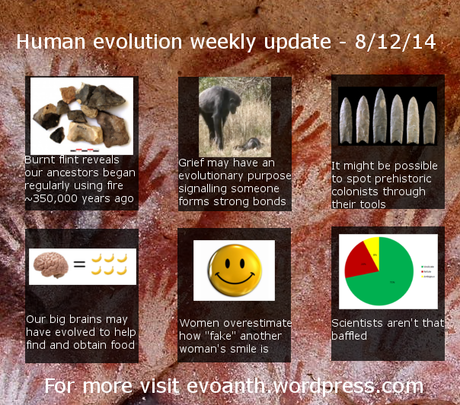
I’m not claiming to be any good at making this sort of thing
- I AM
SIDHomo erectus, LORD OF THE FLAME. Fire was a big development for our ancestors, allowing them to scare off predators, cook food and more. But pinpointing when it was regularly used has been quite difficult. There’s scattered evidence our ancestors were burning things ~1 million years ago; but now the record from an Israeli cave reveals that fire may only have been routinely used ~350,000 years ago (source).
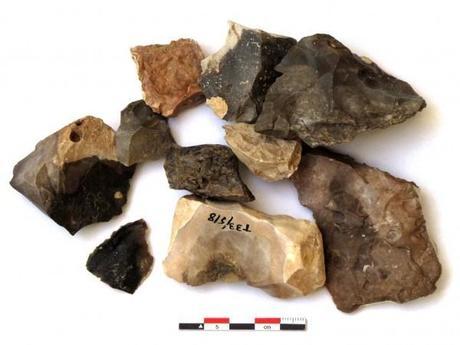
Burnt flint from Tabun Cave, revealing when our ancestors began to routinely use fire
- Did grief evolve? Psychologists from Florida contend that the seemingly destructive behavior actually gave our species an evolutionary advantage. It serves as “costly signal”, showing just how much you were invested in the relationship; proving to others how good a friend/mate you’d be (would you like to know more?).
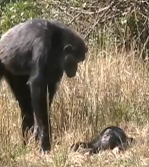
Chimpanzee grief? An adult stands over a recently deceased child
- Spotting prehistoric colonists. Archaeologists speculated that it should be possible to spot prehistoric colonists through their technology. People arriving in an unfamiliar region should make tools designed to be long lasting, since they don’t know when they’d find the resources to make replacements. An examination of early Native American archeology appears to support this speculation (sauce).
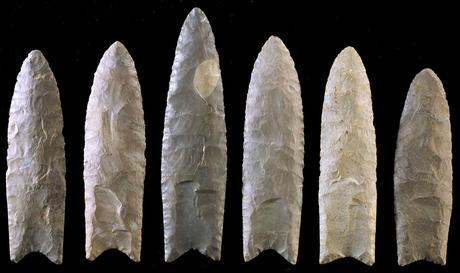
Early Native American technology, perhaps revealing whether the manufacturers were new to the region
- Did we evolve big brains to find food? It was once argued that our big brains evolved to help us find and extract food from the environment; but research ultimatley disproved it. However, a new paper argues we were a bit too hasty with that dismissal and the idea might have some merit after all (clicky clicky)

The human brain requires a lot of food anyway
- Women never trust women. Psychologists studied how good people were at telling fake and real smiles apart in the opposite sex. Men and women were good at spotting when men faked it, but women tended to over-estimate the amount of fake-ness in other womens’ smiles; suspecting completely genuine laughs of being at least partly simulated (sawce).

Guys, I think this one might be a fake
- Just how baffled are scientists? Most news reports make open with the idea that a new discovery has scientists befuddled. But just how true is this? Turns out not very. Whilst there are many surprising discoveries out there scientists aren’t just stumbling around in the dark. In most cases they have a pretty good idea of whats going on (read more).
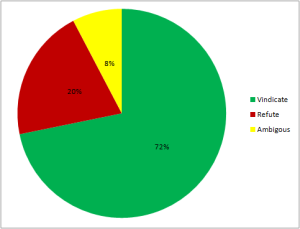
The amount of research that vindicates or refutes existing research

